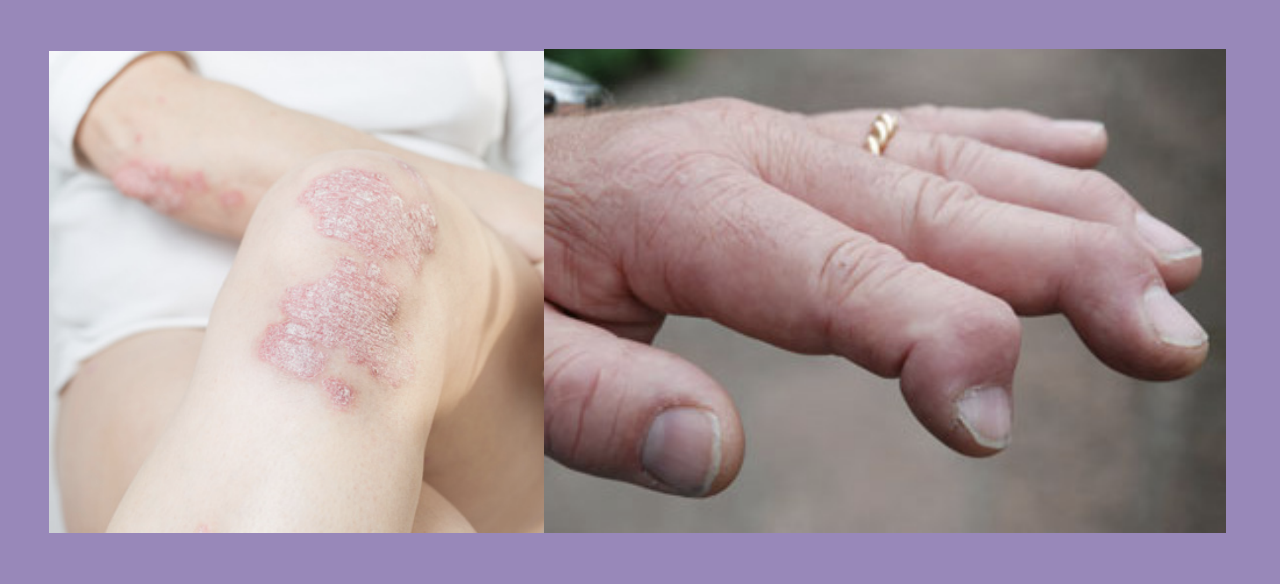-
Medical journals
- Career
Mental Health as an Overlooked Topic in Patients with Psoriasis
4. 7. 2023
Psoriasis is an inflammatory, non-infectious disease primarily affecting the skin, and sometimes the nails, although in some patients, it manifests as psoriatic arthritis. To minimize the negative impact of these stigmatizing issues on patients' daily lives, not only optimal pharmacotherapy is crucial, but also the support of mental health.
A Disease with Significant Psychological Burden
Mental health has long been underestimated compared to physical health. Not only patients with psychiatric diagnoses often face societal stigmatization. This also closely relates to self-stigmatization, where they struggle with feelings of inferiority. In recent years, among other things, the COVID-19 pandemic has highlighted the importance of supporting mental health. Psoriasis is also a typical disease with a significant psychological burden.
It is estimated that about 60 million people worldwide live with psoriasis. The mental discomfort of patients is mainly caused by pruritic skin manifestations in visible areas. One of the risk factors for disease exacerbation is mental stress. Artralgia in psoriatic arthritis further contributes to this. Therefore, timely diagnosis and initiation of optimal treatment are crucial.

Psoriasis as a Cause of Anxiety-Depressive Syndrome
Depression and anxiety disorders are the most common mental illnesses worldwide. It is estimated that 3.4% of the population suffers from depression and 3.8% from anxiety. Patients with chronic diseases, including psoriasis, are at a higher risk for these illnesses. Studies show that up to 54% of patients with this condition experience above-average psychological stress and anxiety. It is estimated that 7–48% of psoriasis patients suffer from anxiety. There seems to be no correlation between the severity of the disease and the risk of developing anxiety.
People with psoriasis also frequently suffer from depression. According to a review of published studies, more than a quarter of these patients exhibit symptoms of depression, and 10% (12% in Europe) have clinical depression. Psoriasis has the highest prevalence of depression among all skin diseases. Young women are most at risk, requiring special attention in this regard. Depression occurs more frequently in patients with psoriasis in the presence of comorbidities such as obesity, arterial hypertension, dyslipidemia, diabetes mellitus (metabolic syndrome), cardiovascular diseases, or inflammatory bowel diseases. Studies show twice as many suicidal thoughts and more successful and unsuccessful suicide attempts compared to the general population. The causal relationship between depression and psoriasis is bidirectional, seemingly linked by inflammation.
Negative Impact (Not Just) on Interpersonal Relationships
In the global survey Psoriasis and Beyond, which included nearly 5,000 psoriasis patients from 20 countries, half of them reported a moderate to high impact of the disease on their quality of life. This includes, for example, the tendency to avoid social events with many people due to the need to cover their skin. Up to 81% of patients report a negative impact on their family, partner, and sexual life. Interestingly, this trend is confirmed by up to 92% of partners, who also suffer from depression and anxiety more frequently. Some women planning pregnancy also have concerns about the hereditary nature of the disease. Depression and anxiety, associated with fatigue and lower productivity, also affect education and employment processes, including more frequent absences. Additionally, mental health problems increase healthcare costs.
The Context of WHO's Long-Term Goals
Among the WHO's long-term goals in supporting mental health are the following:
- By 2030, engage 80% of countries in mental health support programs through primary care.
- By 2030, reduce the prevalence of suicides by one-third.
- By 2030, develop a system of psychosocial support in crisis situations in 80% of countries.
Conclusion for Practice
For patients with psoriasis, timely diagnosis and initiation of optimal treatment are crucial, hand in hand with primary prevention of depression and anxiety. It is suitable to refer a patient suspected of mental health issues to a specialist (psychologist or psychiatrist) as soon as possible, not just because depressive patients are less adherent to treatment. In the context of preventing both disease exacerbation and mental health problems, it is also appropriate to educate patients on a healthy lifestyle, including rational nutrition, regular physical activity, smoking cessation, and abstinence. Patient organizations serve to share experiences, and societal education is necessary to prevent stigmatization. Only with targeted mental health support is it possible to minimize the negative impact of the disease on the daily lives of patients (not just) with psoriasis.
(mafi)
Source: Inside Psoriatis Disease: Mental Health. IFPA, 2022. Available at: https://ifpa-pso.com/resources-tools/inside-psoriatic-disease-mentalhealth
Did you like this article? Would you like to comment on it? Write to us. We are interested in your opinion. We will not publish it, but we will gladly answer you.
Labels
Dermatology & STDs Paediatric dermatology & STDs Paediatric rheumatology General practitioner for children and adolescents General practitioner for adults Rheumatology
Login#ADS_BOTTOM_SCRIPTS#Forgotten passwordEnter the email address that you registered with. We will send you instructions on how to set a new password.
- Career


